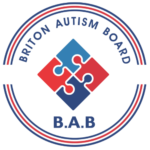Parent and Caregiver Support Groups
Parent and Caregiver Support Groups:
At Briton Autism Board, we understand the importance of providing support not only to individuals with autism spectrum disorders (ASD) but also to their families and caregivers. Our Parent and Caregiver Support Groups offer a safe and nurturing environment for parents, caregivers, and family members to connect, share experiences, gain valuable insights, and access resources to support their journey of caring for a loved one with autism.
Group Objectives:
Emotional Support: The support groups provide a platform for parents and caregivers to express their thoughts, feelings, and concerns in a supportive and non-judgmental atmosphere. Participants can share their challenges, triumphs, and coping strategies with others who understand their experiences firsthand.
Information and Education: Participants have the opportunity to learn from each other, as well as from guest speakers, experts, and professionals in the field of autism. Topics may include understanding autism, navigating the healthcare and education systems, accessing community resources, and advocating for the needs of individuals with autism.
Peer Support and Networking: Support groups facilitate peer support and networking opportunities, allowing participants to connect with others who are facing similar challenges and share advice, tips, and practical strategies for managing day-to-day issues related to caring for a child or family member with autism.
Empowerment and Advocacy: Participants are empowered to become advocates for their loved ones with autism and for the broader autism community. Support groups provide information and resources to help parents and caregivers navigate the complexities of accessing services, securing appropriate accommodations, and advocating for policy changes that benefit individuals with autism and their families.
Community Building: Support groups foster a sense of community and belonging among parents, caregivers, and family members of individuals with autism. Participants develop meaningful connections and friendships, reducing feelings of isolation and building a support network that extends beyond the group meetings.
Format and Structure:
- Support groups may meet on a regular basis (e.g., monthly or bi-monthly) in person or virtually, depending on participants’ preferences and logistical considerations.
- Meetings may include structured discussions, guest speakers, workshops, and social activities designed to promote engagement, learning, and connection.
- Group facilitators provide guidance, moderation, and support to ensure that meetings are productive, respectful, and inclusive.
Conclusion:
At Briton Autism Board, our Parent and Caregiver Support Groups are designed to provide a supportive and empowering space for parents, caregivers, and family members of individuals with autism. By coming together, sharing experiences, and supporting each other, participants can find strength, resilience, and hope in their journey of caring for and advocating for their loved ones with autism.
